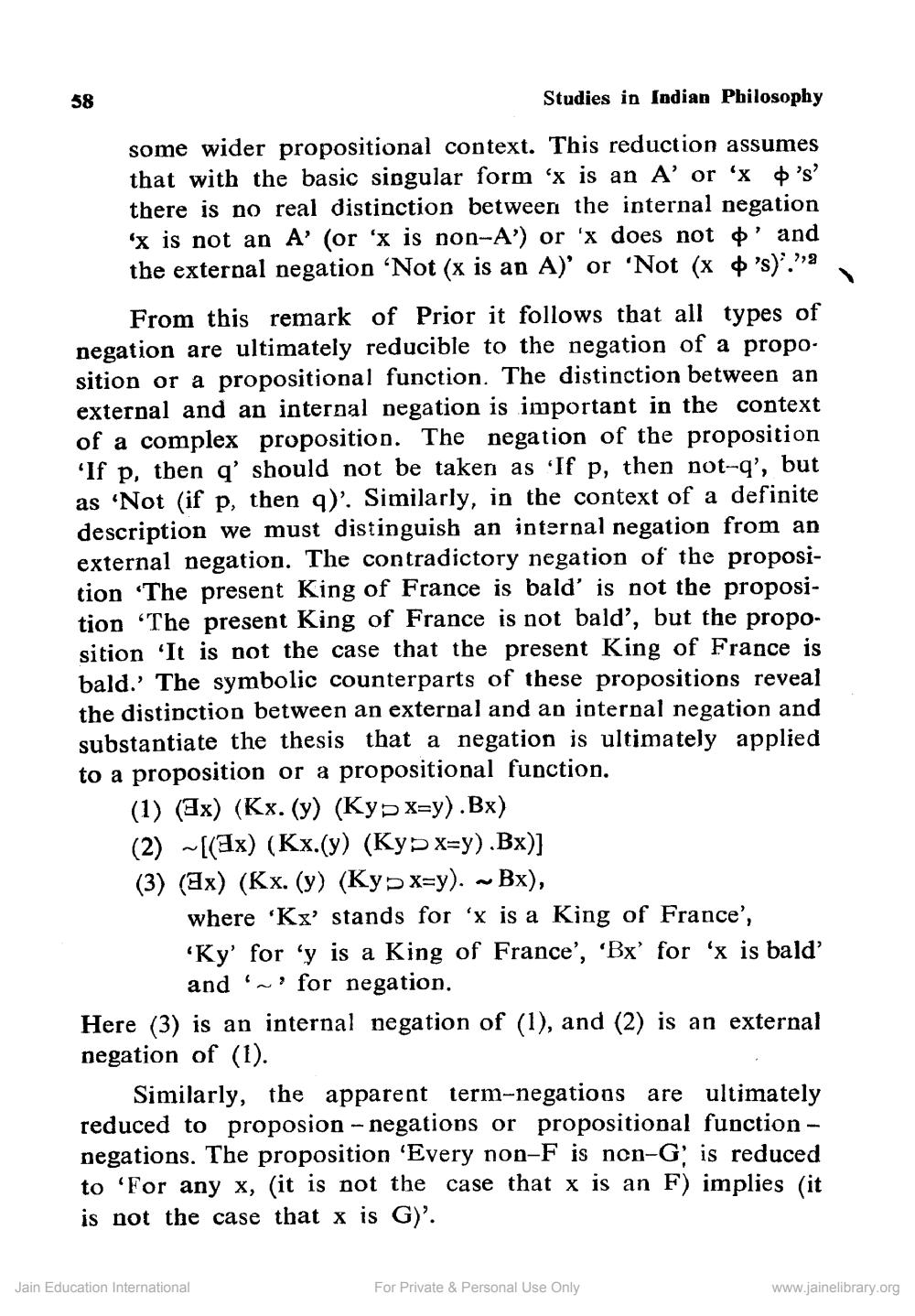________________
58
Studies in Indian Philosophy
some wider propositional context. This reduction assumes that with the basic singular form 'x is an A' or 'x $ 's' there is no real distinction between the internal negation 'x is not an A' (or 'x is non-A') or 'x does not o' and the external negation ‘Not (x is an A)' or 'Not (x $ 's)'."
From this remark of Prior it follows that all types of negation are ultimately reducible to the negation of a propo. sition or a propositional function. The distinction between an external and an internal negation is important in the context of a complex proposition. The negation of the proposition 'If p. tben q' should not be taken as 'If p, then not-g'. but as 'Not (if p, then q)'. Similarly, in the context of a definite description we must distinguish an internal negation from an external negation. The contradictory negation of the proposition ‘The present King of France is bald' is not the proposition 'The present King of France is not bald', but the proposition 'It is not the case that the present King of France is bald.' The symbolic counterparts of these propositions reveal the distinction between an external and an internal negation and substantiate the thesis that a negation is ultimately applied to a proposition or a propositional function.
(1) (Ex) (Kx. (y) (Kyp x=y).Bx) (2) ~[(Ex) (Kx.(y) (Ky> x=y).Bx)] (3) (x) (Kx. (y) (Kyə x=y). ~Bx),
where 'Kx' stands for 'x is a King of France', Ky' for 'y is a King of France', 'Bx' for 'x is bald'
and '~' for negation. Here (3) is an internal negation of (1), and (2) is an external negation of (1).
Similarly, the apparent term-negations are ultimately reduced to proposion - negations or propositional function - negations. The proposition 'Every non-F is non-G: is reduced to 'For any x, (it is not the case that x is an F) implies (it is not the case that x is G)'.
Jain Education International
For Private & Personal Use Only
www.jainelibrary.org




